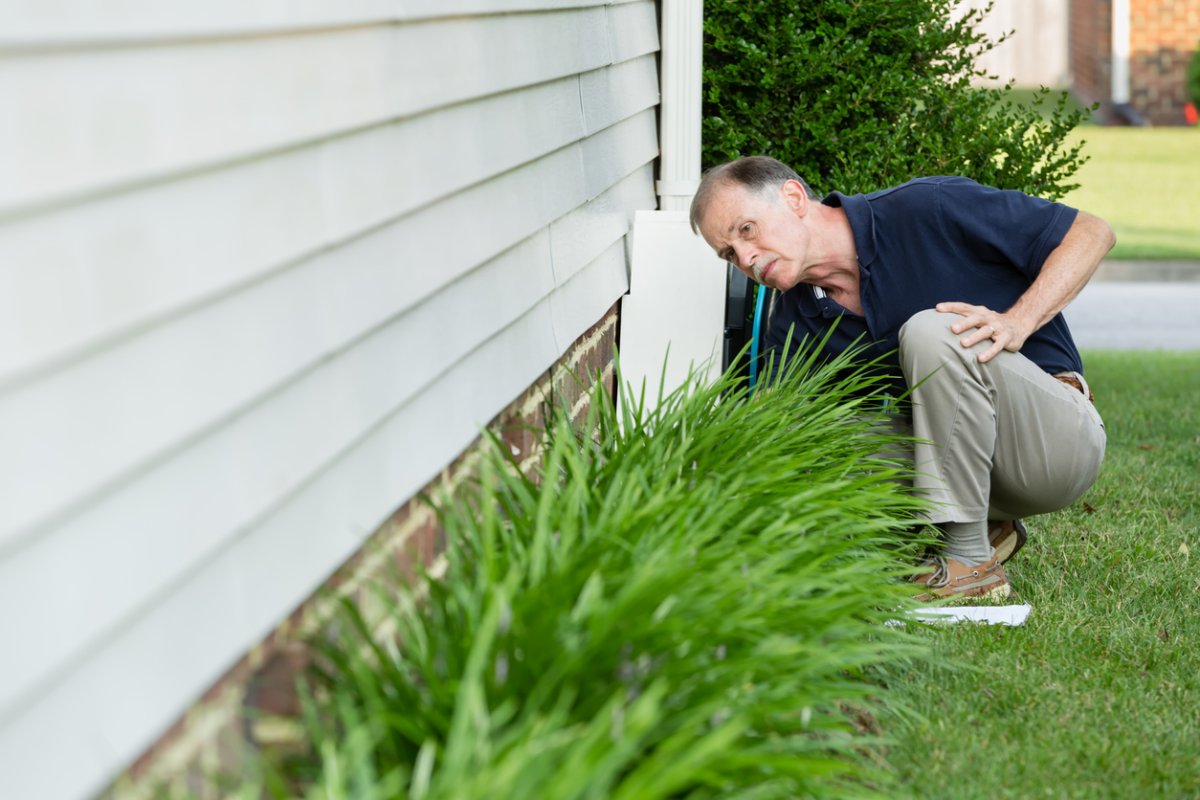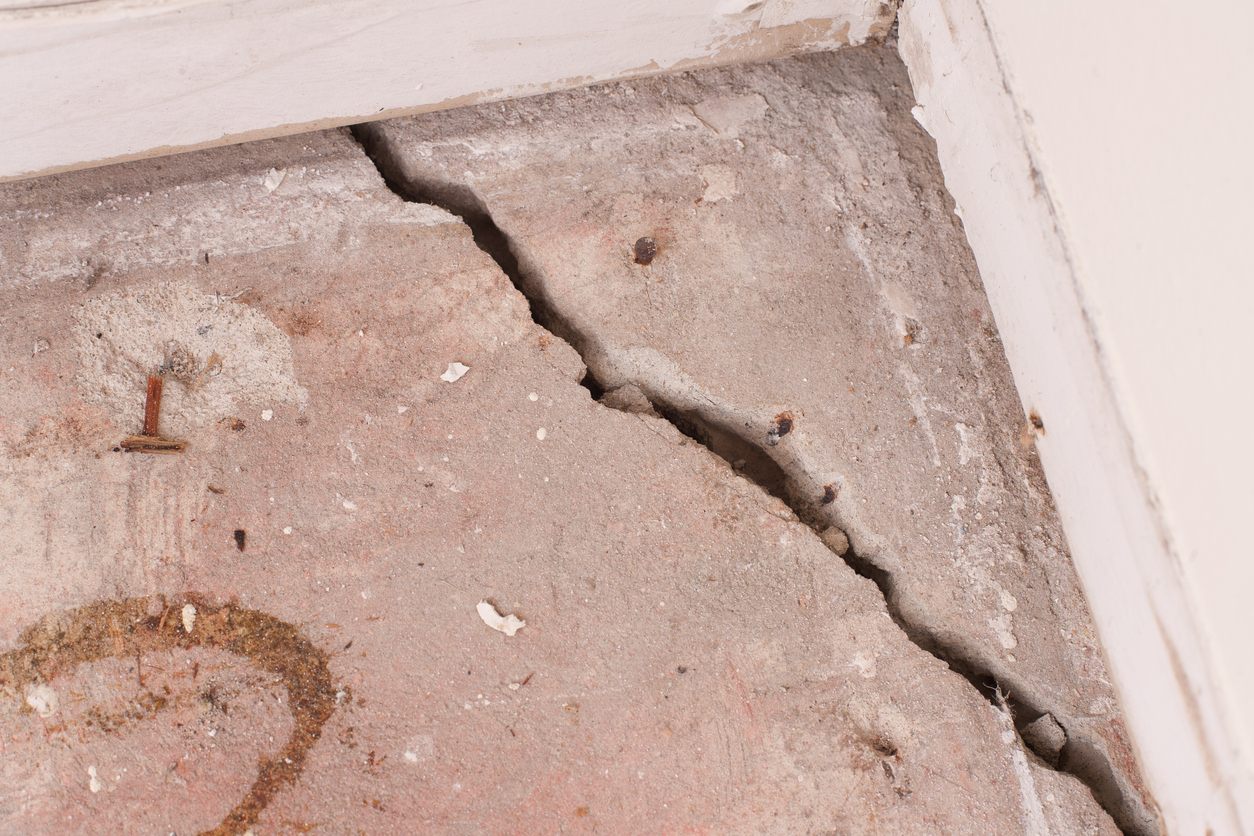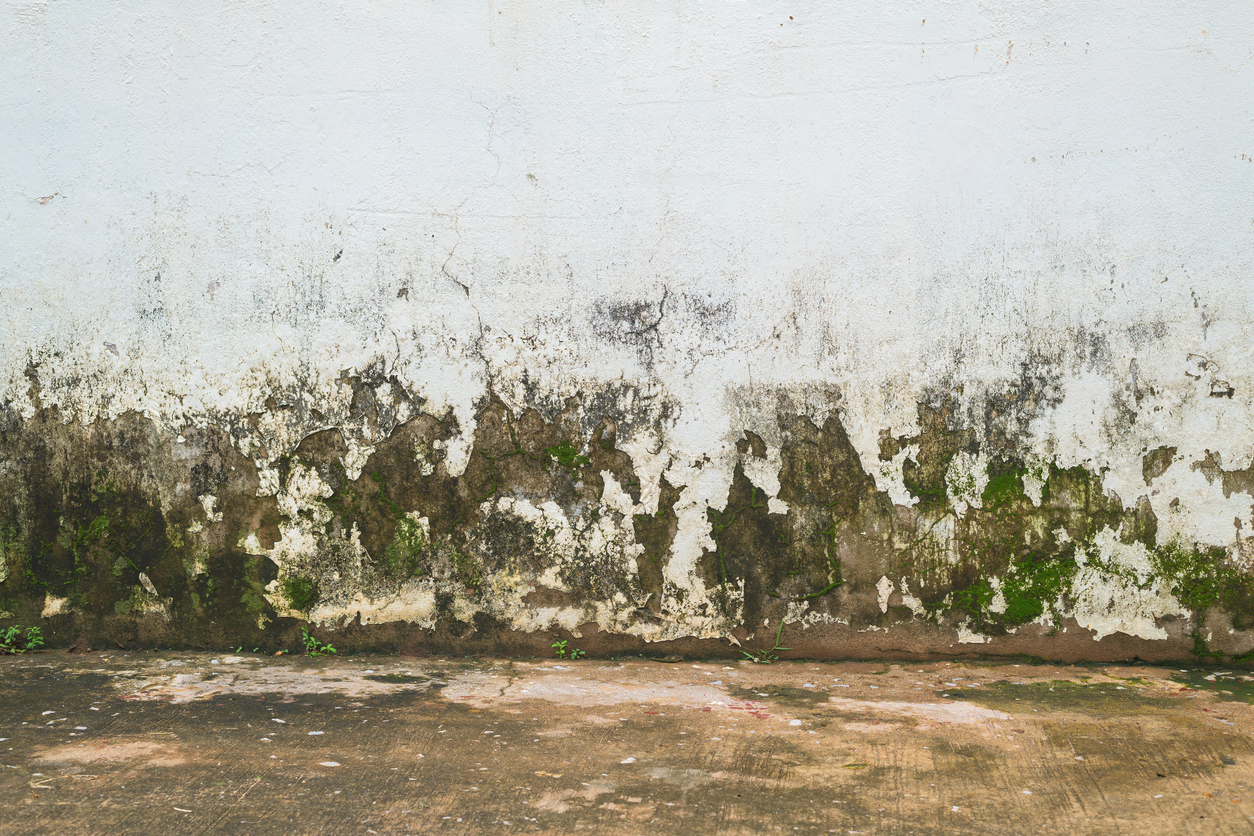

We may earn revenue from the products available on this page and participate in affiliate programs. Learn More ›
While droughts are known to wreak havoc on agriculture and landscaping, it may come as a surprise that they can also damage the foundation of your home. According to the Texas A&M Agrilife Research Extension, dry periods can cause cracking and shifting of a foundation. When clay soil becomes extremely dry, the soil constricts and the foundation moves. This can cause damage such as broken pipes, uneven floors, cracks around door frames, doors sticking shut, a gap between the soil and foundation, cracks in the dirt around the foundation and surrounding yard, and cracks on the foundation’s exterior.
However, due to what USDA calls shrink-swell potential, the soil will then expand when it gets wet. This is why some people recommend watering the foundation to keep the soil from drying out. While foundation watering is common practice in Texas, homeowners in other parts of the country have never heard of it. In fact, experts have mixed views on whether it is a good idea, so this article shares the pros and cons of foundation watering to determine if it’s right for you and your home.
RELATED: The Best Foundation Repair Companies
1. Pro: Prevent Cracks and Foundation Settling/Shifting
As soil shifts or compresses over time when it doesn’t have enough moisture, cracks can start to form and cause serious damage to the structure of the home. “By regularly watering the soil, you can help to keep it from shifting and settling,” suggested Mark Buskuhl, founder and CEO of Ninebird Properties. As it is watered, the soil will slowly expand, reducing voids around your foundation.
2. Con: No Scientific Research to Back It Up
The most problematic issue with this theory is that there is no concrete evidence to prove that watering a foundation actually works. Some experts explain how strong expansive clay soil is, and that watering it won’t make much of a difference. Couple that with ever-changing climate conditions like severe drought, and it seems unlikely that a hose can save a shifting or cracking foundation.
RELATED: 10 Ways to Know Whether You Should Repair a Foundation Crack
3. Pro: Minimize Shrinkage of Soil

When soil dries out, especially clay soil, it contracts. Repetitive expanding and contracting of the soil can result in cracks in the foundation over time since it’s pulled in different directions. Those foundation shifts can cause damage to areas of the home interior. According to Todd Saunders, CEO of FlooringStores, “Watering your foundation can keep the soil around it consistently hydrated, preventing shrinkage during dryer periods of the year.”
4. Con: Increase Risk of Flooding
A big concern with watering the foundation is that if too much water accumulates around the base of the house, it can cause serious damage like drainage issues if a flood occurs. When watering the foundation, it should be a slow soak that doesn’t produce puddles.
RELATED: 9 Things You Won’t Believe Homeowners Insurance Doesn’t Cover
5. Pro: Keep Plants Healthy
David Edens of Edens Structural Solutions says the best way to water your foundation is to plant leafy shrubs, flowers, or other greenery along the foundation line and water them all year long. As you water the plants to keep them healthy and thriving, the foundation also reaps the benefits.
6. Con: Waste Water

Consistent foundation watering can significantly increase your water bill and end up wasting water. Buskuhl explained that it can be an inefficient use of water. “If you are not careful about how much water you’re using, it can quickly add up. Therefore, it’s important to take the necessary steps to ensure that you’re not wasting any unnecessary water when watering your home foundation.”
RELATED: Weathering Water Restrictions: How to Save Your Landscape From the Effects of Drought
7. Pro: Avoid Costly Repairs
Some experts believe that watering the foundation around your home could save thousands of dollars in potential repairs since foundation repair costs in the range of $2,164 to $7,793 and up. A basic hose has a price tag of $30 to $50. It is even less expensive to install an irrigation system than to have to deal with a major foundation repair. A sprinkler system costs between $1,679 and $3,541, with a national average of $2,540.
8. Con: Provide False Comfort
Another concern is that homeowners might think watering will repair a damaged foundation. However, if your home is already showing signs of foundation problems, no amount of water will remove cracks or restore it to its original elevation. If you see signs of foundation problems, it is critical to contact a professional engineer to perform a structural inspection of your foundation to determine the best course of action before it gets worse.
RELATED: 10 DIY Yard Drainage Solutions to Protect Your Home’s Foundation
9. Con: Overwatering Can Cause More Damage
“If you overwater your foundation, it can lead to soil instability and over time this can disrupt the integrity of your foundation and lead to damage,” Saunders pointed out. Water at least 18 to 24 inches away from the foundation and let the water soak in laterally and vertically. It is also important to set a watering schedule to maintain a consistent moisture level. Either hand water the foundation using a garden hose or use a soaker hose or sprinkler system that irrigates the area for approximately 15 to 30 minutes. Be sure to take into account soil type, sun exposure, temperature, and weather conditions when assessing how much water the area needs.
10. Con: Trigger Moisture Problems

Too much water can cause mold and mildew to form, which can be unsightly and a health hazard. Additionally, if moisture builds up and ends up dripping down the foundation wall, water can seep through cracks and end up inside the house.
RELATED: Everything You Need to Know About a Foundation Inspection: Why It’s Crucial, Who to Hire, and More
11. Con: Challenging When Water Restrictions in Place
If water restrictions are issued for the region, it could impact how much water the area around the foundation gets during that period. Some jurisdictions may allow foundation watering, so check the local drought and water emergency plan for details. As an alternative, consider using gray water, which is wastewater from non-toilet plumbing systems such as washing machines, showers, baths, and rainwater.
